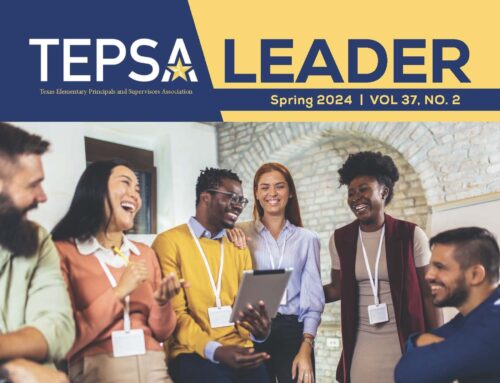In this first part of a two-part blog post, a former Title I elementary school principal, counselor, and teacher delineates the staggering amount of out-of-school suspensions across the U.S. and the impact this has, particularly on students living in poverty. He also outlines three issues that explain why such students can have difficulty following school rules.
 Out-of-school suspensions are increasing, disproportionately unbalanced, and they don’t work to change behavior in most instances. How big is the problem? In 2016 the U.S. Department of Education reported that 3.45 million (of the 50 million students who attend public schools) were suspended out of school. And 130,000 students were expelled. Further, they noted, “Various data sources show clearly that students with disabilities and students of color are disproportionately impacted by such practices…black students are suspended and expelled at a rate three times greater than white students, while students with disabilities are twice as likely to receive an out-of-school suspension as their nondisabled peers.” Many of these students live in poverty.
Out-of-school suspensions are increasing, disproportionately unbalanced, and they don’t work to change behavior in most instances. How big is the problem? In 2016 the U.S. Department of Education reported that 3.45 million (of the 50 million students who attend public schools) were suspended out of school. And 130,000 students were expelled. Further, they noted, “Various data sources show clearly that students with disabilities and students of color are disproportionately impacted by such practices…black students are suspended and expelled at a rate three times greater than white students, while students with disabilities are twice as likely to receive an out-of-school suspension as their nondisabled peers.” Many of these students live in poverty.
How did this shocking state of affairs get this way, and what can be done about it? What are specific, long-term positive practices, not restorative practices that are essentially remedial and of short-term benefit?
First, some background on what underlies misbehavior so egregious that a student must be suspended (often multiple times) out of school. One large contributor to this state of affairs is an overwhelming issue that impacts millions of school children every day: They live in poverty. For the most part they lack adequate food, housing, and interaction with positive role models. Dr. Ruby Payne is an acknowledged expert on poverty and schools, and in her seminal book she sheds a bright light on what contributes to children from poverty having difficulty with school rules.
The majority of schools in the U.S. reflect the larger socioeconomic focus on middle class values and ways of interaction. In the middle class one has to understand the abstract world of concepts and ideas. Conversely, those living in poverty are at the survival level of life. Going hungry is not an abstract concept. Moreover, thousands of public schools are staffed by middle class teachers who uphold middle class rules. Schools are about the future, while poverty is about surviving today. Sounds okay if you’re in the middle class. But what if you aren’t?
What is it about living in poverty that contributes to students not following middle class rules in the schools? Payne outlines three issues that come into play. The first is how punishment for misbehavior is handled in poverty. Basically, in poverty, discipline is a cycle of misbehavior, penance, and forgiveness. That is, if children show penance for their actions, this leads to forgiveness from adults. Little thought is given to the behavior repeating/escalating. Violence is also often present, and “penance” is a result of coercion. But in the middle class world of the school, misbehavior is about changing one’s behavior so that misbehavior is not repeated. The emphasis is on learning from one’s mistakes. Most school teachers were raised in and live in the middle class. So for students from poverty, the way they are disciplined at home conflicts with what public school expects in the way of following rules.
A second issue is what Payne calls “hidden rules.” She notes that any subgroup (as well as the three broad social classes of poverty, middle class, and wealth), has unspoken cues and habits that are unknown to those from outside that group. At best, students from poverty are at a disadvantage in a middle class environment; it is as foreign to them as the world of poverty would be to a middle class kid.
A third issue that really speaks to how one is raised in a middle class household is what Payne calls “the language of negotiation.” She outlines the difference between processing problems with the “child voice” (feeling helpless), the “parent voice” (judgmental, win-lose mentality), and the “adult voice” (open, nonjudgmental, win-win problem solving). Payne states there is not much negotiation in poverty since one doesn’t have many options over which to negotiate. So when teachers, using the parent voice, evaluate behavior they believe violates a rule (a rule that perhaps the child did not understand), the child might laugh inappropriately. This makes teachers a feel disrespected. When I was a principal, students showing disrespect was always the main reason they were referred to me.
The conundrum, of course, is that preparing students to join the world of work is a primary goal of education, and the world of work operates on middle class norms too. But for many kids in poverty, being exposed to middle class norms in schools doesn’t “take.” Further, students who are seen as disrespectful and who don’t have the skills to succeed in school rob others of learning, as well as doom themselves to a lifetime of being behind. To add irony to injury, schools too often suspend these students out of school, sending them back to the very same environment that doesn’t understand or foster compliance with school rules in the first place.
So what can actually be done? There are preventive approaches that work in public schools. In the next blog post I will share what I have used that teaches students from poverty how to generate alternatives—and make choices—that keep them in school and learning. In my school we treated misbehavior as a teaching opportunity for students to learn to problem solve with people. This is a long-term approach that actively teaches children the communication skills they need to be successful in school—not suspended out of school. Sound interesting? Read Part 2.
David Burgess is an independent educational consultant in Richmond, Virginia. He is an adjunct professor for the University of Richmond and a university supervisor for James Madison University. Before retiring, Dave served as a Title I elementary school principal in Henrico County (Virginia) public schools for 17 years; during the last 12 years of his tenure, his school attained and maintained full state accreditation.
Before serving as a principal, Dave was the school counseling program specialist for the Virginia Department of Education, and before that he served as a school counselor and teacher in the public schools of Virginia and Florida. As a school counselor in Henrico County Schools, he introduced the Friendly Helper Peer Facilitation program to the county schools. And as a principal in the same county, his school was a model program for the state of Virginia in the Positive Behavior Intervention Support Program (PBIS).








